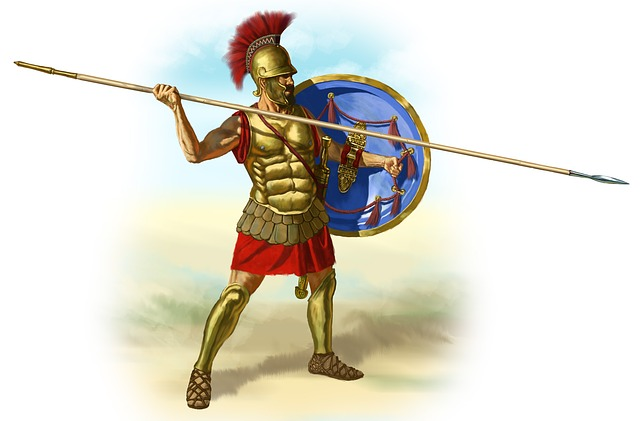
In a recent article in The Detroit News, tea partier Todd Courser compared himself to the legendary gladiators:
“We were not created by the genteel side of Republican politics,” said Courser, a 42-year-old Lapeer attorney. “We were created from the rough and tumble work of gladiators.”
It’s a beautifully ironic statement given who the gladiators really were:
A gladiator was an armed combatant who entertained audiences in the Roman Republic and Roman Empire in violent confrontations with other gladiators, wild animals, and condemned criminals. Some gladiators were volunteers who risked their legal and social standing and their lives by appearing in the arena. Most were despised as slaves, schooled under harsh conditions, socially marginalized, and segregated even in death. […]By the closing years of the politically and socially unstable Late Republic, gladiator games provided their sponsors with extravagantly expensive but effective opportunities for self-promotion while offering cheap, exciting entertainment to their clients. Gladiators became big business for trainers and owners, for politicians on the make and those who had reached the top. […]
Ownership of gladiators or a gladiator school gave muscle and flair to Roman politics.
The irony, of course, is that the tea party was never truly a grassroots movement. Rather, it was a tool used by the wealthy to get others to do their political dirty work for them. As Lee Fang wrote in his excellent book “The Machine: A Field Guide to the Resurgent Right” (my review is HERE), the tea party was the creation of wealthy corporatists who wished to harness anti-government sentiment and use it to further their corporatist agenda:
The tobacco industry demonstrated that the Tea Party could be used to induce regular Americans to find common cause with corporate interests, and [Dick] Armey’s stunts showed willingness from the Republican Party to embrace the concept as their own. However, the nuts and bolts of how to create a self-perpetuating antigovernment Tea Party were designed primarily by three wealthy libertarians: real estate magnate Howie Rich and the billionaire owners of Koch Industries, Charles and David Koch.
When Courser describes himself as a gladiator, I can envision the über-wealthy Koch brothers, with cigars and a glass of rare scotch in their hands, nodding and smiling in agreement while urging their little warrior to continue his battle to the death to help further a pro-business, anti-regulation agenda on their behalf.
The irony is beyond rich.



